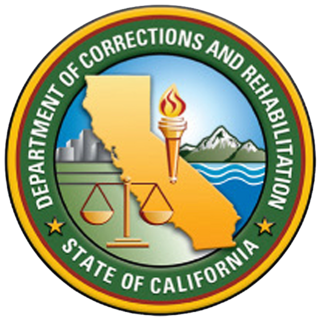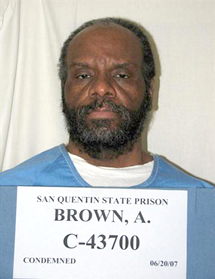Related Research Articles
Vexatious litigation is legal action which is brought solely to harass or subdue an adversary. It may take the form of a primary frivolous lawsuit or may be the repetitive, burdensome, and unwarranted filing of meritless motions in a matter which is otherwise a meritorious cause of action. Filing vexatious litigation is considered an abuse of the judicial process and may result in sanctions against the offender.
A lawsuit is a proceeding by one or more parties against one or more parties in a civil court of law. The archaic term "suit in law" is found in only a small number of laws still in effect today. The term "lawsuit" is used with respect to a civil action brought by a plaintiff who requests a legal remedy or equitable remedy from a court. The defendant is required to respond to the plaintiff's complaint or else risk default judgment. If the plaintiff is successful, judgment is entered in favor of the defendant. A variety of court orders may be issued in connection with or as part of the judgment to enforce a right, award damages or restitution, or impose a temporary or permanent injunction to prevent an act or compel an act. A declaratory judgment may be issued to prevent future legal disputes.

The California Department of Corrections and Rehabilitation (CDCR) is the penal law enforcement agency of the government of California responsible for the operation of the California state prison and parole systems. Its headquarters are in Sacramento.

The California Division of Juvenile Justice (DJJ), previously known as the California Youth Authority (CYA), is a division of the California Department of Corrections and Rehabilitation that provides education, training, and treatment services for California's most serious youth offenders. These youths are committed by the juvenile and criminal courts to DJJ's eleven correctional facilities, four conservation camps and two residential drug treatment programs. The DJJ provides services to juvenile offenders, ranging in age from twelve to 25, in facilities and on parole, and works closely with law enforcement, the courts, district attorneys, public defenders, probation offices and other public and private agencies involved with the problems of youth. The DJJ is undergoing reorganization as required by a court agreement and the California State Legislature after widespread criticisms of conditions at its youth prisons. The agency's headquarters are in Sacramento, California.

Valley State Prison (VSP), previously the Valley State Prison for Women (VSPW), is a state prison in Chowchilla, California. It is across the road from Central California Women's Facility. It was formerly a prison for women.
Susan Yvonne Illston is a senior United States district judge of the United States District Court for the Northern District of California. She was nominated by President Bill Clinton and confirmed by the Senate in 1995. She assumed senior status in 2013.

California Correctional Center (CCC) is a state prison in the city of Susanville in Northern California. It is a minimum-security facility.

California State Prison, Solano (SOL) is a male-only state prison located in the city of Vacaville, Solano County, California, adjacent to the California Medical Facility. The facility is also referenced as Solano State Prison, CSP-Solano, and CSP-SOL.

The California State Prison System is a system of prisons, fire camps, contract beds, reentry programs, and other special programs administered by the California Department of Corrections and Rehabilitation (CDCR) Division of Adult Institutions to incarcerate approximately 117,000 people as of April 2020. CDCR owns and operates 34 prisons throughout the state and operates 1 prison leased from a private company.
Prison Legal News (PLN) is a monthly American magazine and online periodical published since May 1990. It primarily reports on criminal justice issues and prison and jail-related civil litigation, mainly in the United States. It is a project of the Human Rights Defense Center (HRDC), a 501(c)(3) non-profit organization.

The American Foundation for Equal Rights (AFER) was a nonprofit organization active in the United States from 2009 through 2015. The organization was established to support the plaintiffs in Hollingsworth v. Perry, a federal lawsuit challenging California's Proposition 8 under the Due Process and Equal Protection Clauses of the Fourteenth Amendment to the United States Constitution. AFER retained former United States Solicitor General Theodore B. Olson and David Boies to lead the legal team representing the plaintiffs challenging Proposition 8.
Hollingsworth v. Perry was a series of United States federal court cases that re-legalized same-sex marriage in the state of California. The case began in 2009 in the U.S. District Court for the Northern District of California, which found that banning same-sex marriage violates equal protection under the law. This decision overturned California ballot initiative Proposition 8, which had banned same-sex marriage. After the State of California refused to defend Proposition 8, the official sponsors of Proposition 8 intervened and appealed to the Supreme Court. The case was litigated during the governorships of both Arnold Schwarzenegger and Jerry Brown, and was thus known as Perry v. Schwarzenegger and Perry v. Brown, respectively. As Hollingsworth v. Perry, it eventually reached the United States Supreme Court, which held that, in line with prior precedent, the official sponsors of a ballot initiative measure did not have Article III standing to appeal an adverse federal court ruling when the state refused to do so.
Plata v. Newsom, Docket No. 4:01-cv-01351-JST, is a federal class action civil rights lawsuit alleging that the California Department of Corrections and Rehabilitation's (CDCR) medical services are inadequate and violate the Eighth Amendment, the Americans with Disabilities Act, and section 504 of the Rehabilitation Act of 1973. As a result of the case, the CDCR's prison medical conditions were found to be in violation of the Eighth Amendment to the United States Constitution. After repeated violations of a stipulated agreement and order for injunctive relief, the CDCR was held in civil contempt and the medical health care system was placed in receivership.
Marsy's Law, the California Victims' Bill of Rights Act of 2008, enacted by voters as Proposition 9 through the initiative process in the November 2008 general election, is an amendment to the state's constitution and certain penal code sections. The act protects and expands the legal rights of victims of crime to include 17 rights in the judicial process, including the right to legal standing, protection from the defendant, notification of all court proceedings, and restitution, as well as granting parole boards far greater powers to deny inmates parole. Critics allege that the law unconstitutionally restricts defendant's rights by allowing prosecutors to withhold exculpatory evidence under certain circumstances, and harms victims by restricting their rights to discovery, depositions, and interviews. Passage of this law in California led to the passage of similar laws in Florida, Georgia, Illinois, Kentucky, Nevada, North Carolina, Oklahoma, Ohio and Wisconsin, and efforts to pass similar laws in Hawaii, Iowa, Montana, Idaho, South Dakota, and Pennsylvania. In November 2017, Marsy's Law was found to be unconstitutional and void in its entirety by the Supreme Court of Montana for violating that state's procedure for amending the Montana Constitution. The Pennsylvania Supreme Court reached the same conclusion as Montana under its own state constitution in 2021.

Lucy Haeran Koh is an American lawyer serving as a United States circuit judge of the United States Court of Appeals for the Ninth Circuit. Koh previously served as a United States district judge of the United States District Court for the Northern District of California from 2010 to 2021. She also served as a California state court judge of the Santa Clara County Superior Court from 2008 to 2010. She is the first Korean American woman to serve on a federal appellate court in the United States.

Albert Greenwood Brown Jr. is an American murderer and rapist who has been convicted of sexual molestation with force of a minor, two counts of first-degree rape with force, and the first degree murder of a teen girl in Riverside, California.
Brown v. Plata, 563 U.S. 493 (2011), was a decision by the Supreme Court of the United States holding that a court-mandated population limit was necessary to remedy a violation of prisoners’ Eighth Amendment constitutional rights. Justice Kennedy filed the majority opinion of the 5 to 4 decision, affirming a decision by a three judge panel of the United States District Court for the Eastern and Northern Districts of California which had ordered California to reduce its prison population to 137.5% of design capacity within two years.

Jon Steven Tigar is an American lawyer serving as a United States district judge of the United States District Court for the Northern District of California. He was previously a California state court judge on the Alameda County Superior Court from 2002 to 2013.
California's Public Safety Realignment initiative, officially known as "Realignment", was a combination of two bills passed by the state of California, with the ultimate goal of reducing its state prison population by shifting much of that population to county jails. It was the result of a court-order in response to shortfalls in medical and mental health care for the state's prison population.

California Health Care Facility (CHCF) is a state prison for incarcerated patients with long-term medical needs or acute mental health needs. The prison is located in Stockton, California, on the site of the former Karl Holton Youth Correctional Facility. Incarcerated people of all security levels are treated at the facility.
References
- 1 2 3 4 5 6 7 Order for population reduction plan, three-judge court convened by the Chief Judge of the United States Court of Appeals for the Ninth Circuit hearing Plata v. Schwarzenegger and Coleman v. Schwarzenegger
- ↑ Moore, Solomon (August 4, 2009), "California Prisons Must Cut Inmate Population", The New York Times , retrieved October 13, 2009
- ↑ Yi, Matthew; Egelko, Bob (September 19, 2009), State fails federal demand to cut prisoners, San Francisco Chronicle, p. C-1, retrieved October 23, 2009
- ↑ Egelko, Bob (October 22, 2009), Court, governor dig in heels on prison crowding, San Francisco Chronicle, p. A-11, retrieved October 23, 2009
- ↑ Rothfeld, Michael (October 22, 2009), "Judges reject California plan to cut prison crowding", Los Angeles Times , p. A-11, retrieved October 23, 2009
- ↑ Walsh, Denny (October 22, 2009), Federal judges reject plan to cut California prison crowding, Sacramento Bee, p. A4, archived from the original on October 25, 2009, retrieved October 23, 2009
- ↑ Order to reduce prison population Archived 2010-12-18 at the Wayback Machine , three-judge court, convened by the Chief Judge of the United States Court of Appeals for the Ninth Circuit hearing Plata v. Schwarzenegger and Coleman v. Schwarzenegger
- ↑ Jurisdictional statement, California Attorney General et al.
- ↑ Egelko, Bob (June 15, 2010), "High Court to Rule on State Inmate Reductions", San Francisco Chronicle
- ↑ , Oyez